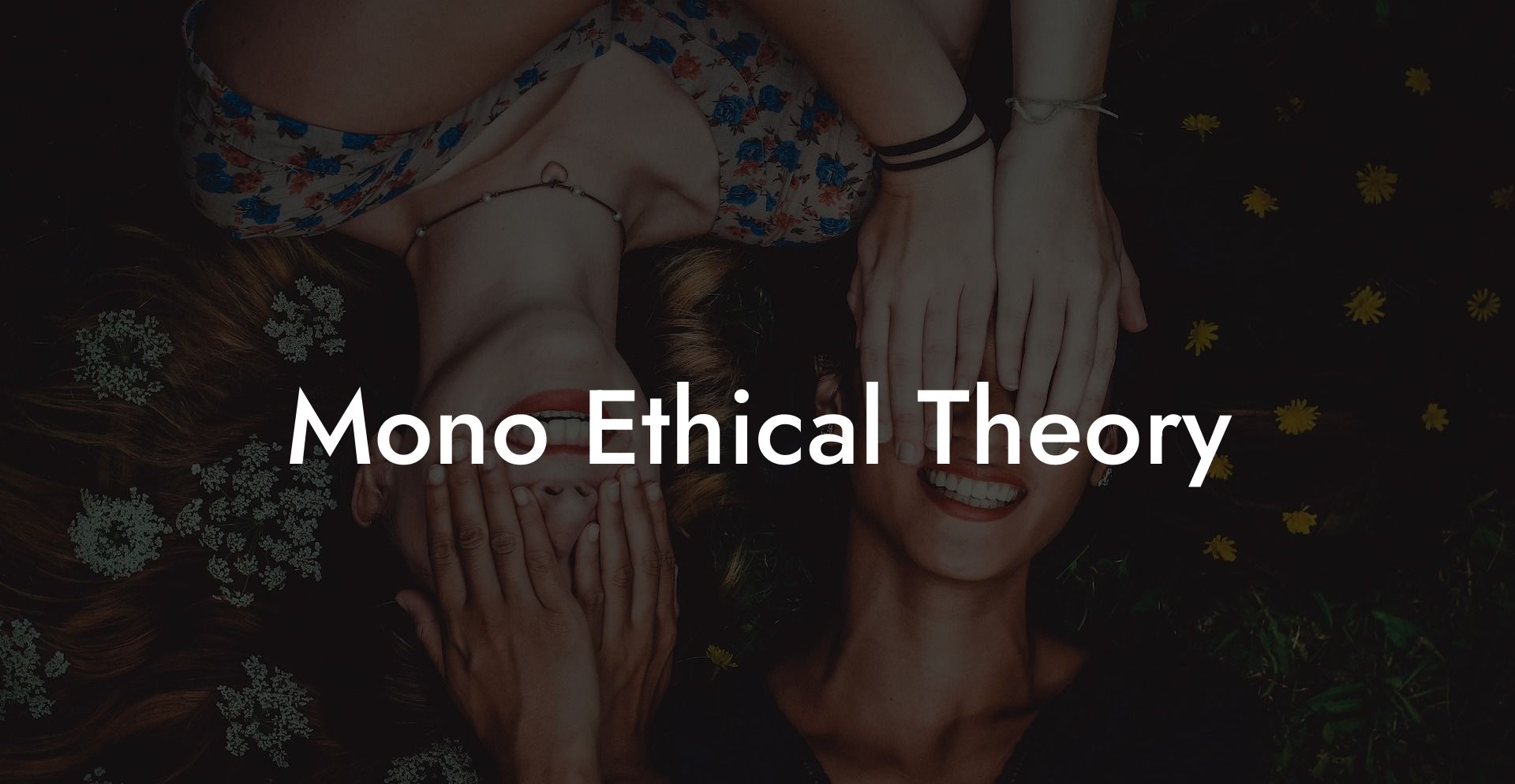Welcome to The Monogamy Experiment, your go-to source for navigating the world of relationships. In this article, we'll delve deep into the realm of Mono Ethical Theory, examining its influence on monogamous relationships and how it can guide us in our decisions when it comes to love and commitment.
Mono Ethical Theory Table of Contents
What is Mono Ethical Theory?
Mono Ethical Theory is a philosophical concept centered on the belief that monogamy is the most ethically sound choice for people seeking committed, long-term relationships. It supports the idea that one's energy and attention should be devoted solely to one partner in order to achieve a harmonious, fulfilling connection.
Key Principles of Mono Ethical Theory
- Exclusivity: In a monogamous relationship, both partners agree to be exclusive in their emotional and sexual connections. This is seen as the cornerstone of trust and commitment in the relationship.
- Honesty: Open communication is essential to the success of a monogamous relationship. Both partners must be willing to share their thoughts and feelings openly and honestly with each other.
- Commitment: Both partners must be willing to put in the work necessary to maintain a strong and loving connection. The longevity of the relationship is a high priority in Mono Ethical Theory.
- Responsibility: Monogamy requires that both partners take responsibility for their actions and the impact those actions have on the relationship. This includes emotional well-being, mental health, and sexual safety.
Why Mono Ethical Theory Matters in Relationships
In today's world, many people are exploring different types of relationship structures, such as polyamory and open relationships. However, Mono Ethical Theory argues that monogamy remains the most ethically responsible choice for committed relationships. Here are some reasons why:
- Trust and Security: Exclusivity in a monogamous relationship creates a sense of trust and security that both partners can rely on. Knowing that your partner is committed only to you can provide a strong foundation for a thriving relationship.
- Emotional Intimacy: By focusing on one partner, individuals in monogamous relationships can cultivate a deeper level of emotional intimacy and understanding, which can lead to a more fulfilling connection.
- Stability: Monogamous relationships can provide a sense of stability and predictability that can contribute to the overall well-being of both partners.
Applying Mono Ethical Theory to Your Relationship
Whether you're already in a monogamous relationship or considering embarking on one, Mono Ethical Theory can provide a helpful framework for making decisions and navigating challenges. Here are some ways to incorporate this theory into your relationship:
- Regularly communicate with your partner about your expectations and boundaries within the relationship.
- Consider the ethical implications of your actions, both within and outside of your relationship.
- Take responsibility for your own emotional well-being and communicate openly with your partner about any issues that arise.
- Continuously work on building trust, emotional intimacy, and commitment with your partner.
Mono Ethical Theory Example:
John and Jane have been dating for two years and are considering taking the next step by moving in together. Both John and Jane subscribe to Mono Ethical Theory and believe that their monogamous relationship can provide the foundation for a long-lasting, loving partnership. They regularly communicate openly about their expectations, boundaries, and any concerns that arise. This openness ensures that they can navigate their life together with a strong sense of trust and emotional intimacy.
Now that you're well-versed in Mono Ethical Theory, you have an ethical framework to guide your future decisions in your monogamous relationship. Explore more of our articles on The Monogamy Experiment to gain further insights into the world of monogamy, polyamory, and everything in between. Don't forget to share this post with others who may be interested in understanding the ethical aspects of monogamy.













